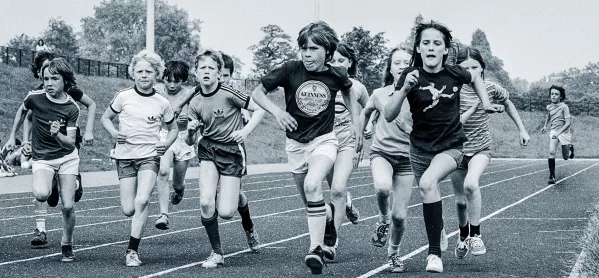Poorer pupils harder hit by Covid lockdowns, warns ONS

Headteachers’ leaders have criticised the government’s refusal to fund “ambitious” Covid recovery plans after fresh data revealed that almost twice as many disadvantaged pupils felt they fell behind through pandemic disruption compared with their peers.
Analysis published today by the Office for National Statistics is focused on students who were in Year 11 in the 2020-21 academic year and in Year 12 when they provided survey answers.
It shows that a higher proportion of young people living in the most deprived areas reported that they had fallen behind their classmates through disruption caused by the pandemic (42 per cent), compared with those in the least deprived areas (26 per cent).
The ONS also highlights that by the third national lockdown - which started in January 2021 - a gap had emerged, with those in the most deprived areas less likely to report that their school had provided real-time online learning (81 per cent) compared with those in least deprived areas (93 per cent).
- Exclusive: Education recovery commissioner quits over funding
- Background: Catch-up plan a “paltry damp squib”
- Catch-up: Only one in four students had recommended NTP support
Commenting on the findings, Sarah Hannafin, head of policy at the NAHT school leaders’ union, said: “Children from disadvantaged backgrounds have disproportionately suffered from funding cuts over the last decade, not just to schools but to wider services that should be there to help them.
“This research suggests that despite schools and their staff going above and beyond to help, Covid hit these pupils particularly hard - not because they were less motivated than their more affluent peers but due to additional barriers faced by families in these communities.
“Yet, shockingly, the government refused to fund the ambitious recovery plan proposed by its own education recovery tsar, failing the children and young people who need help the most.”
Covid hit disadvantaged pupils ‘particularly hard’
The government appointed Sir Kevan Collins as its education recovery tsar but he later resigned after ministers did not provide funding for a £15 billion plan to support education catch-up after the pandemic.
Ms Hannafin added: “The government must do far more if it is serious about tackling inequalities, investing much more in both schools and community services like social care and mental health, which are so important in supporting pupils and helping them to progress in their learning and education.”
Today’s ONS report also shows that young people in the most deprived areas were less likely to report feeling unmotivated and struggling to engage with studies or work during the first and third lockdowns (at 61 per cent and 54 per cent respectively), compared with those in the least deprived areas (70 per cent and 61 per cent).
Chris Shine, from the ONS, said: “This survey will be following the experience of young people who were in Year 11 during the Covid-19 pandemic to see how that may have impacted on their futures. Today’s results confirm a lot of what we heard at the time about the challenges students faced. But we also see that students from the most deprived areas were particularly motivated to overcome these barriers.”
The research looks at the first and third national lockdowns - in the spring of 2020 and January 2021 - because these both involved schools being closed for in-person learning for the majority of pupils. Schools remained open for the second national lockdown in 2020.
The analysis includes young people attending state comprehensive, grammar and independent schools who were in Year 11 in the 2020-21 academic year and Year 12 or college when they completed the survey. It compares the experiences of those in the most and least deprived categories of the Income Deprivation Affecting Children Index (IDACI).
A Department for Education spokesperson said: “During the pandemic we provided 1.95 million laptops and tablets to help children learning remotely, as well as support for 130,000 families to get online.
“We have made almost £5 billion available for education recovery initiatives, including more than £1 billion for the National Tutoring Programme, which continues to help those pupils most in need of support, and has had over 3 million courses started to date.
“We are also supporting the most vulnerable pupils through pupil premium funding, which is increasing to almost £2.9 billion in 2023-24 - the highest cash terms rate since this funding began.”
You need a Tes subscription to read this article
Subscribe now to read this article and get other subscriber-only content:
- Unlimited access to all Tes magazine content
- Exclusive subscriber-only stories
- Award-winning email newsletters
Already a subscriber? Log in
You need a subscription to read this article
Subscribe now to read this article and get other subscriber-only content, including:
- Unlimited access to all Tes magazine content
- Exclusive subscriber-only stories
- Award-winning email newsletters



